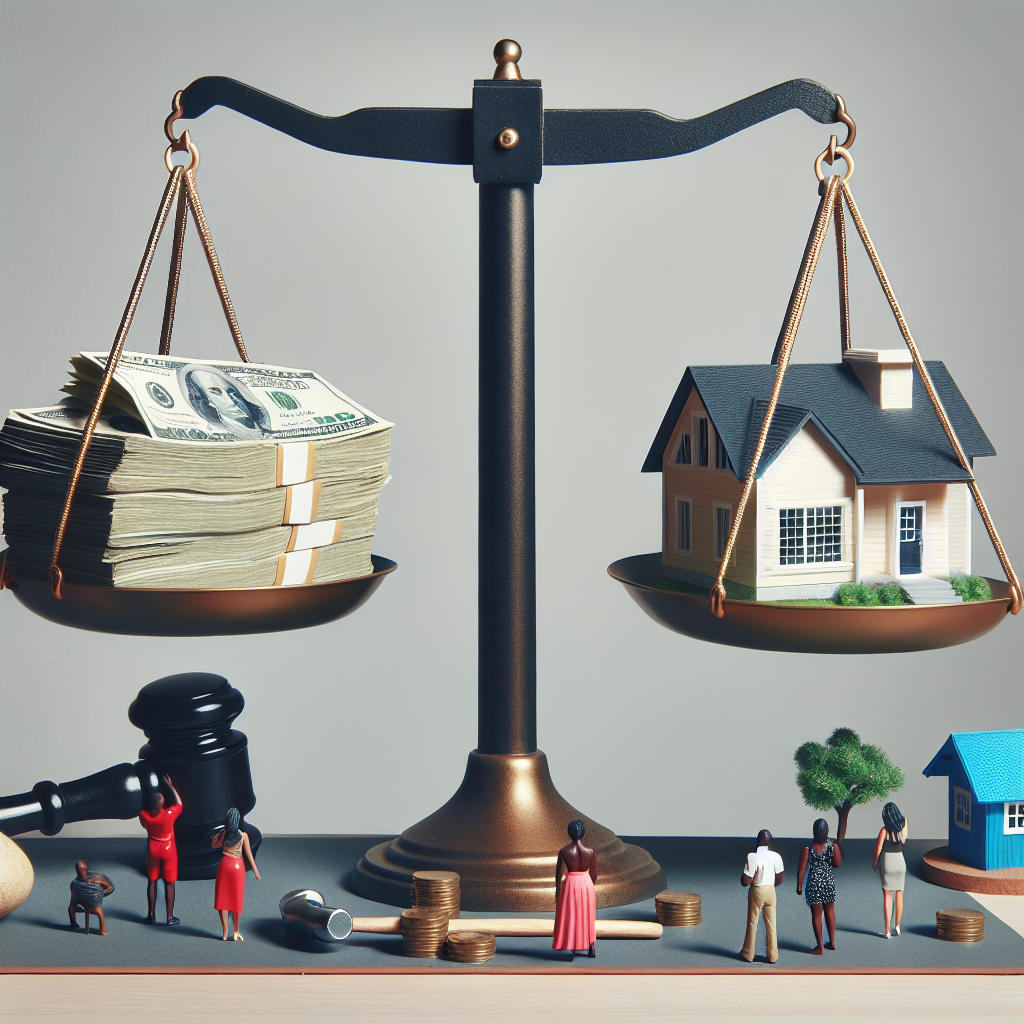Understanding the Financial Benefits
Cash Flow
One of the first things I learned when diving into the world of rental properties is the amazing potential for cash flow. If you buy a property in a great location and attract reliable tenants, the monthly rent can cover your mortgage and expenses while also putting some money in your pocket. I remember feeling so accomplished when my first rental check came in, and I realized I was earning money while I slept!
However, not every property will generate positive cash flow, especially if you go for a high-priced house in a less-than-ideal area. It’s crucial to crunch the numbers before you buy. I always recommend keeping expenses at the forefront, including unexpected costs like repairs or vacancy periods.
When done right, this cash inflow can provide a consistent stream of passive income, and that’s a game changer. You can pay down debt, save for future investments, or even take that vacation you’ve been dreaming about!
Tax Advantages
Let’s be real: no one loves paying taxes. But investing in rental properties can come with some solid perks! For instance, you can deduct many expenses associated with managing your rental, like maintenance, property management fees, and even certain travel costs associated with your property.
Moreover, depreciation is a biggie. You can write off the value of the property over time, which can significantly lower your taxable income. This piece of advice saved me when filing my taxes last year; always consult with a tax pro to maximize those benefits!
In my experience, understanding these tax benefits can really turn the tide in making rental properties financially feasible and rewarding. It’s all about knowing how to leverage them correctly.
Long-Term Wealth Building
Over the long haul, real estate can be one of the best ways to build wealth. Historically, property values tend to appreciate over time. In my own journey, I have seen certain neighborhoods grow in value, and it’s thrilling to think that my investments are worth more than I initially paid!
Plus, as your property appreciates and you pay down your mortgage over the years, your equity grows. This can be especially useful when considering future investment opportunities, whether that’s buying another rental or even leveraging the equity for other ventures.
Knowing that I’m building something that will benefit my future self gives me all the motivation I need. Real estate isn’t just about today; it’s about what you can build for tomorrow.
Navigating the Challenges
Property Management Issues
Let’s not sugarcoat it—managing rental properties can be a headache sometimes. From finding the right tenants to dealing with late payments or property damage, it’s not all sunshine and rainbows. I’ve had my share of late-night calls about broken toilets; it’s all part of the game!
One tip I learned the hard way is to draft a solid lease agreement. Having clear terms can save you from many future misunderstandings. A good lease should communicate everything, from payment deadlines to what happens in case of damages.
Investing in property management software or even hiring a property manager can alleviate some of these stresses. Trust me, sometimes it’s totally worth the investment to handle the headaches instead of taking them on solo.
Market Risks
No investment is without its risks, and real estate is no exception. Market fluctuations can impact your property value and rental income. I remember a time when a downturn hit my neighborhood, and it was nerve-wracking trying to keep the property afloat.

https://Credit411USA.com
To mitigate this, I’ve learned to research market trends thoroughly before jumping into new investments. Being up-to-date on local market conditions can help you understand when it’s the right time to buy or sell.
Additionally, having an emergency fund set aside for those tough times can be a lifesaver. It’s all about being prepared for whatever curveballs come your way.
Tenant Relations
Let’s talk about sharing your space with others and the challenges that can arise. Building a good relationship with your tenants is vital, but it isn’t always easy. I’ve faced my share of challenges with tenants needing to leave unexpectedly or not respecting the property.
Open communication is key. I’ve found it really helpful to be upfront about expectations and maintain a level of friendliness that encourages tenants to feel comfortable reaching out to me. This opens the door to addressing issues before they become major problems.
Sometimes, despite your best efforts, things just might not work out. The best thing you can do is remain professional and respectful throughout the process. It’s part of the learning curve in rental investment!
Final Thoughts: Is it Worth It for You?
Evaluating Your Goals
In the end, deciding whether investing in rental properties is worth it really boils down to your personal goals. Why are you considering this investment avenue? Understanding your own motives can help clarify whether this path suits you.
Some investors are purely in it for the short-term cash flow; others are playing the long game. Reflecting on your financial strategy will guide you on whether to jump into rental properties or explore other avenues of investment.
Ultimately, this journey can be incredibly rewarding; just be prepared with both knowledge and a sense of adventure.
FAQ
1. What are the primary financial benefits of investing in rental properties?
The main financial benefits include generating cash flow, enjoying tax advantages, and building long-term wealth through property appreciation.
2. What should I consider when managing my rental property?
Consider creating a solid lease agreement, keep communication open with tenants, and decide whether to manage the property yourself or hire a property management service.
3. How can I mitigate market risks in rental investments?
Staying informed about local market trends, conducting thorough research prior to purchasing, and having an emergency fund can help mitigate market risks.
4. How important is tenant relations in property management?
Tenant relations are critical; good communication and professionalism can prevent misunderstandings and make for a more harmonious renting experience.
5. Is investing in rental properties suitable for everyone?
It depends on individual goals and financial situations. It’s vital to assess your personal motivations and readiness for managing the responsibilities that come with rental properties.

https://Credit411USA.com

